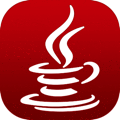Java Enterprise Edition 7: WebSockets but no cloud support
 The Java Community Process (JCP) Executive Committee that is responsible for the specification of the Java Enterprise Edition (Java EE) has approved the release of version 7 of the software platform for Java-based server and web applications. In a "Final Approval Ballot", almost all members of the Executive Committee voted in favour of the latest proposed version of the Java Specification Request, JSR 342. Along with Java sponsor Oracle, committee members include representatives from IBM, ARM, Hewlett-Packard, Intel and Red Hat, as well as from the Eclipse Foundation and the London Java Community.
The Java Community Process (JCP) Executive Committee that is responsible for the specification of the Java Enterprise Edition (Java EE) has approved the release of version 7 of the software platform for Java-based server and web applications. In a "Final Approval Ballot", almost all members of the Executive Committee voted in favour of the latest proposed version of the Java Specification Request, JSR 342. Along with Java sponsor Oracle, committee members include representatives from IBM, ARM, Hewlett-Packard, Intel and Red Hat, as well as from the Eclipse Foundation and the London Java Community.
JSR 342 is a higher-level specification that has a range of other Java specifications underneath it that have each previously been approved by the responsible Expert Groups. The following technologies have made it into the new version of Enterprise Java: EJB 3.2 (Enterprise JavaBeans), Java Servlet 3.1, JMS 2.0 (Java Message Service), JAX-RS 2.0 (Java API for RESTful Web Services), WebSocket 1.0, Concurrency Utilities for Java EE 1.0, JSF 2.2 (JavaServer Faces), Bean Validation 1.1, Expression Language 3.0, CDI 1.1 (Contexts and Dependency Injection), Batch Applications and JPA 2.1 (Java Persistence API).
This version of Java EE was originally scheduled to be released in the fourth quarter of 2012. Last summer, the developers postponed the new release to spring 2013 in order to allow new features such as WebSockets to be integrated. However, other aspects including PaaS (Platform-as-a-Service) support and multi-client capabilities, and most recently JCache, were rescheduled to be integrated into Java EE 8, which is currently planned to arrive in spring 2015.
The previous version, Java EE 6, was released in December 2009. With Java EE 6, the developers split the platform to create a Web Profile and a Full Profile edition. The Web Profile edition offers fewer features than the Full profile edition and only includes the technologies that are typically used in Java web applications. Around a dozen application servers now support Java EE 6. For Java EE 7, the developers will now focus on completing Oracle's free GlassFish 4.0 application server, the reference implementation for the new version of Enterprise Java. Further servers will follow over time.
(sno)
![Kernel Log: Coming in 3.10 (Part 3) [--] Infrastructure](/imgs/43/1/0/4/2/6/7/2/comingin310_4_kicker-4977194bfb0de0d7.png)

![Kernel Log: Coming in 3.10 (Part 3) [--] Infrastructure](/imgs/43/1/0/4/2/3/2/3/comingin310_3_kicker-151cd7b9e9660f05.png)
















